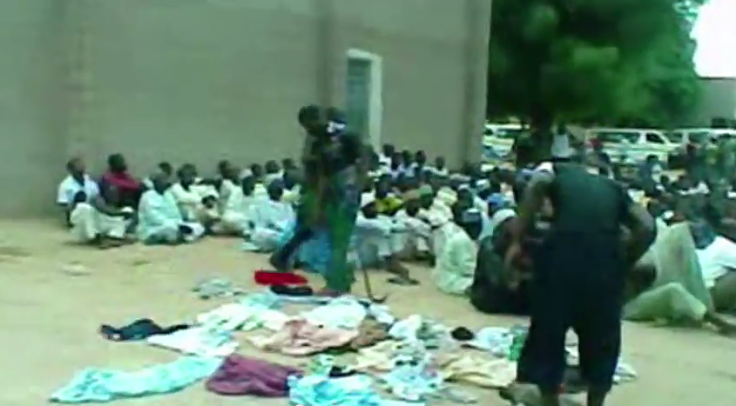Boko Haram Suspects Beheaded by Nigerian Soldiers in Amnesty Video

NGO Amnesty International has obtained footage purportedly showing Nigerian soldiers beheading suspected members of terror group Boko Haram and dumping their bodies in a mass grave.
The video, which could not be independently verified, comes along with an Amnesty report suggesting the Nigerian army might be committing war crimes.
"The footage, obtained from numerous sources during a recent trip to Borno state, reveals graphic evidence of multiple war crimes being carried out in Nigeria," Amnesty said.
"It includes horrific images of detainees having their throats slit one by one and dumped in mass graves by men who appear to be members of the Nigerian military and the "Civilian Joint Task Force" [CJTF], state-sponsored militias."
Amnesty said the beheadings occurred shortly after Boko Haram attacked a detention centre in Giwa Barracks, in the northeastern city of Maiduguri, on 14 March.
Salil Shetty, Amnesty's secretary general, said the video is further proof of the atrocities committed by both Boko Haram and government troops in the north-eastern part of the country.
"What does it say about a country when members of its military carry out such unspeakable acts and then deliberately capture the images on film?" he said. "These are not the images we expect from a country which sees itself as having a leadership role in Africa.
"The ghastly images are made worse by the numerous testimonies we have gathered which suggest that extrajudicial executions are, in fact, regularly carried out by the Nigerian military and CJTF."
President Goodluck Jonathan is struggling to contain the insurgence of Boko Haram, which opposes the westernisation of Nigeria and seeks to impose sharia law in the country.
The militants, currently led by Abubakar Shekau, carry out their attacks primarily in northern Nigeria, where three states – Borno, Yobe and Adamawa - have been under a state of emergency since May.
Violence linked to the Boko Haram insurgency has resulted in an estimated 10,000 deaths between 2002 and 2013.
The group sparked global outcry when it abducted 220 girls in Chibok last April. The girls are still missing, amid fears they are being used by the militants as suicide bombers.
"Members of Boko Haram and other armed groups are responsible for a huge number of heinous crimes - like the abduction of the schoolgirls in Chibok... but the military are supposed to defend people, not to carry out further abuses themselves," said Shetty.
"A state of emergency must not give way to a state of lawlessness. Sadly, the same communities are now being terrorised in turn by Boko Haram and the military alike."
© Copyright IBTimes 2025. All rights reserved.






















